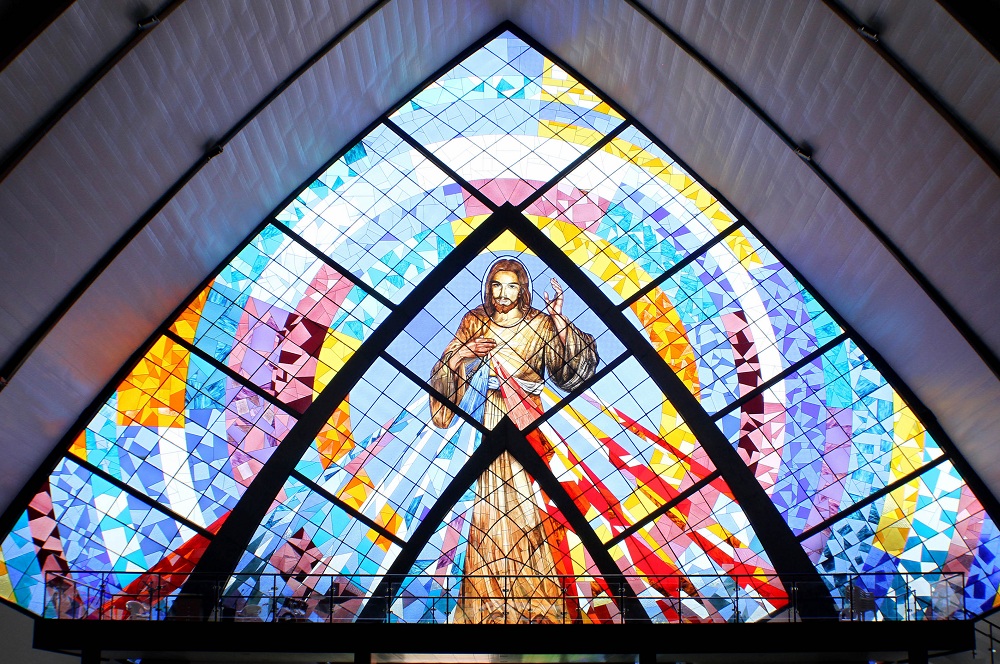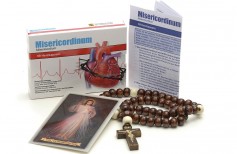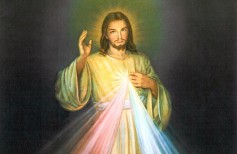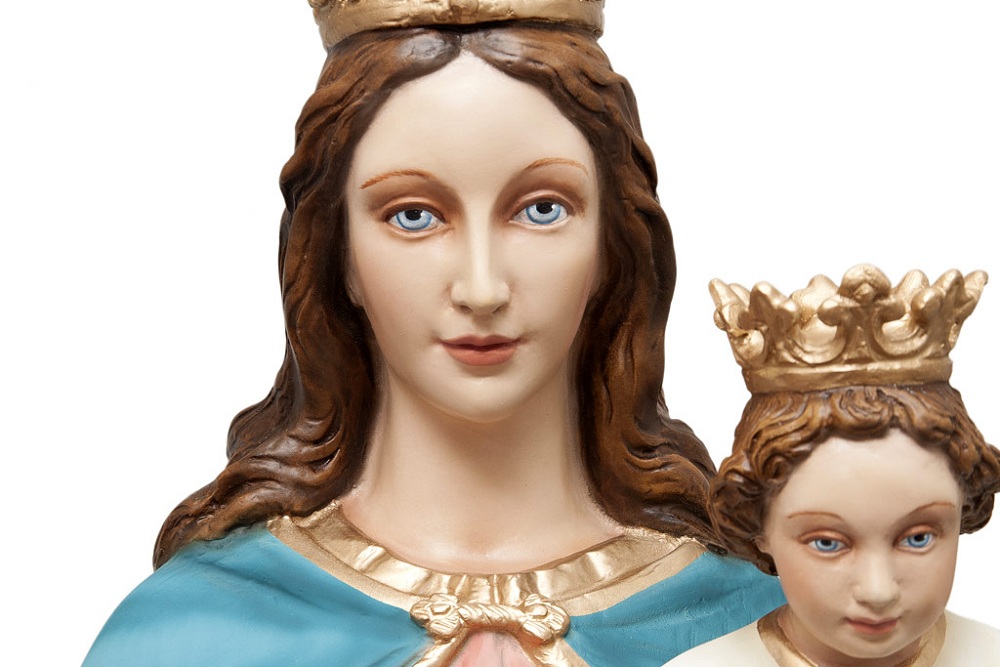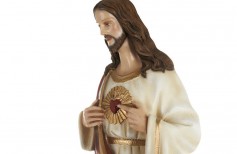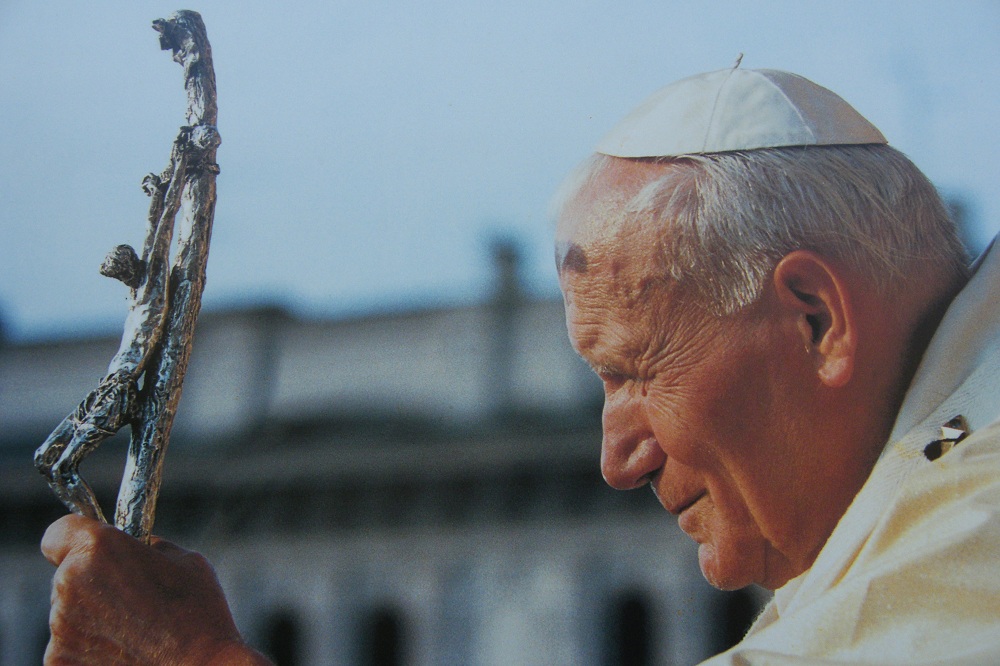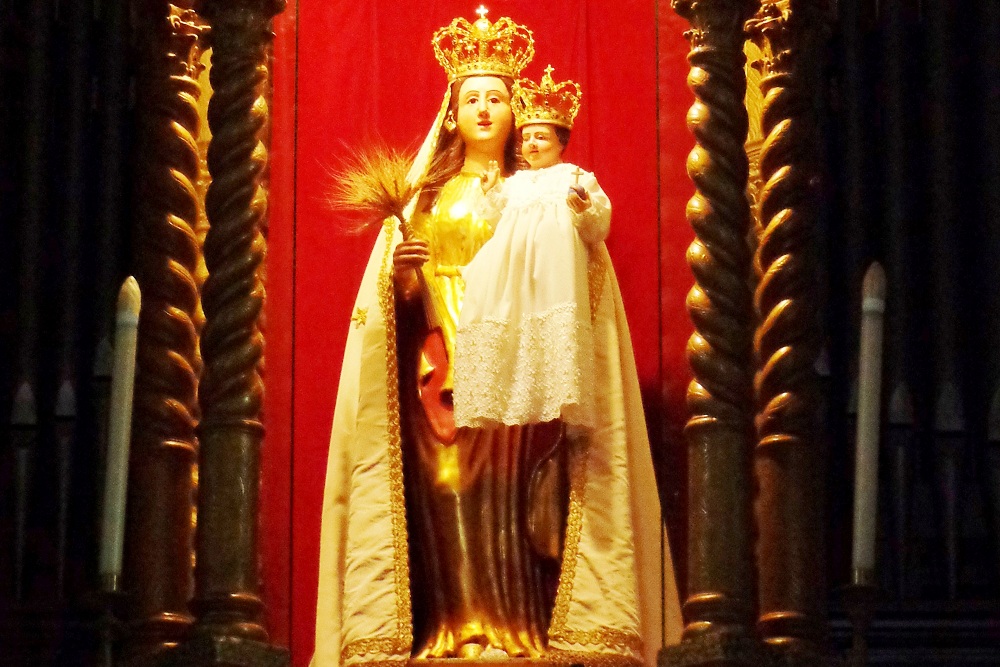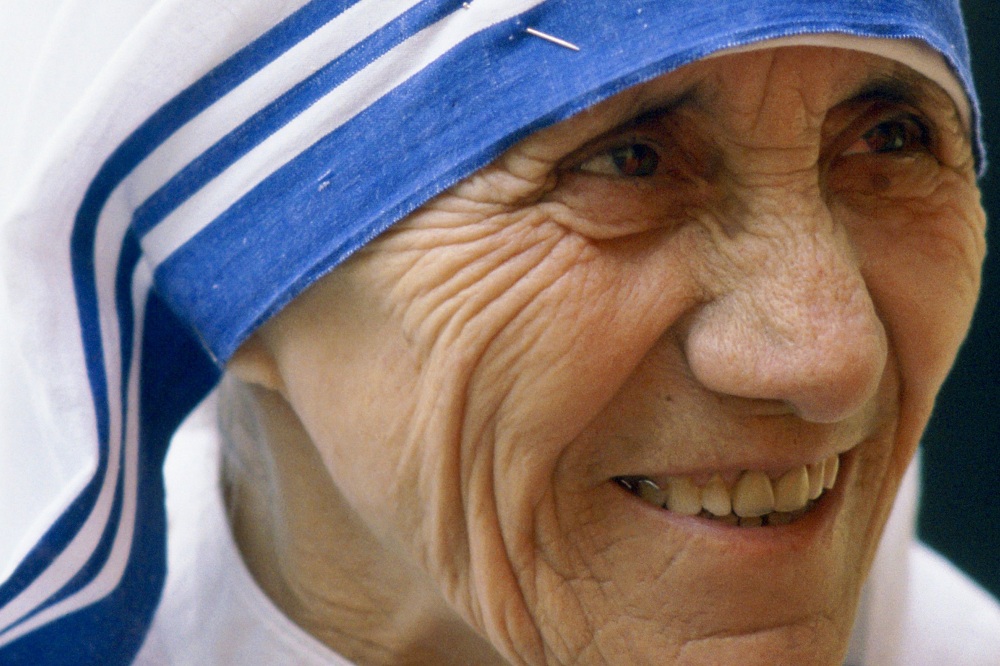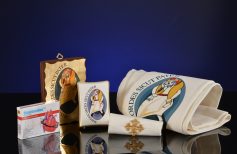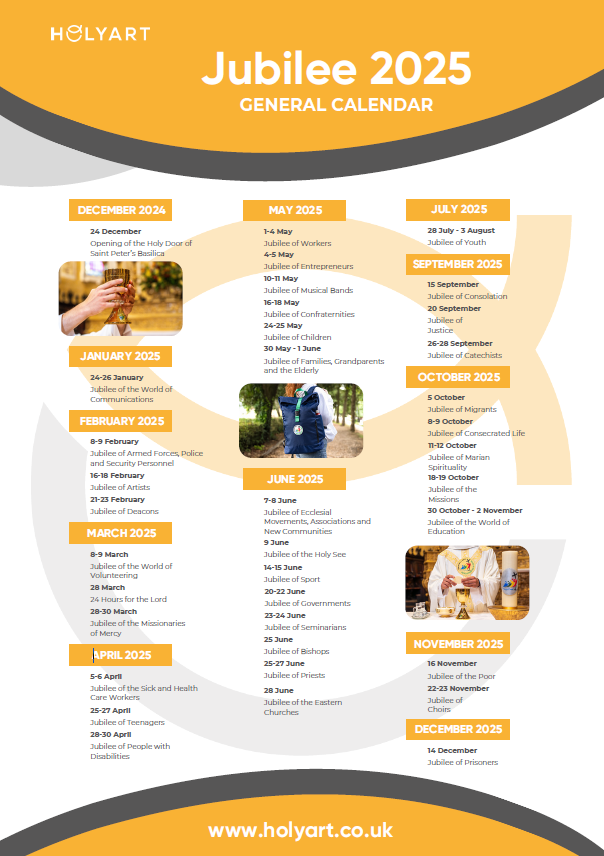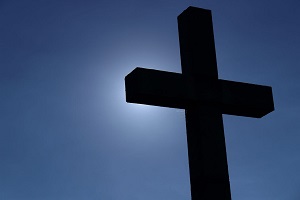The cult of Divine Mercy started rather late. It was a cult started by Maria Faustina Kowalska, a Polish nun canonized in 2000 by Pope John Paul II.
A member of the Congregation of the Sisters of Our Virgin Mary of Mercy, Sister Faustina showed mystical qualities since very young age. Her diary contains many dialogues that took place over the years between her and God. Thanks to this this connection with the Lord, in addition to graces, revelations, visions, stigmata and numerous other gifts to raise her to the role of Saint.
The cult of Divine Mercy started from a vision Sister Faustina had in 1931: Jesus appeared in his cell dressed in white, with one hand raised in blessing and the other resting on his chest, from which two protruding shining rays: one pale and the other red.
Jesus explained that the pale ray represented the Water which represents the souls, and the red the blood, which is life.
The Lord ordered her to paint Him in this way and make sure the image was revered around the world. He also said that the celebration during which the image was to be blessed should take place on the first Sunday after Easter. Pope John Paul II canonized Faustina, and decreed that the Feast of Divine Mercy was to be celebrated every year on that date.
In another appearance, Jesus dictated Sister Faustina the Chaplet of Divine Mercy, a devotional prayer that gives special favors to those reciting it, in particular the promise of a peaceful death. Even the worst sinners reciting once the Chaplet of Divine Mercy can find in it the last lifeline and the forgiveness of all sins. The prayer of the Divine Mercy is a heartfelt plea to Jesus, a merciful Father, ready to welcome at any time in His embrace the suffering children, ready to pick up and comfort all their troubles.
Simply recite the Chaplet of Divine Mercy to find relief from worries and a new intimate and profound joy to face life with.

